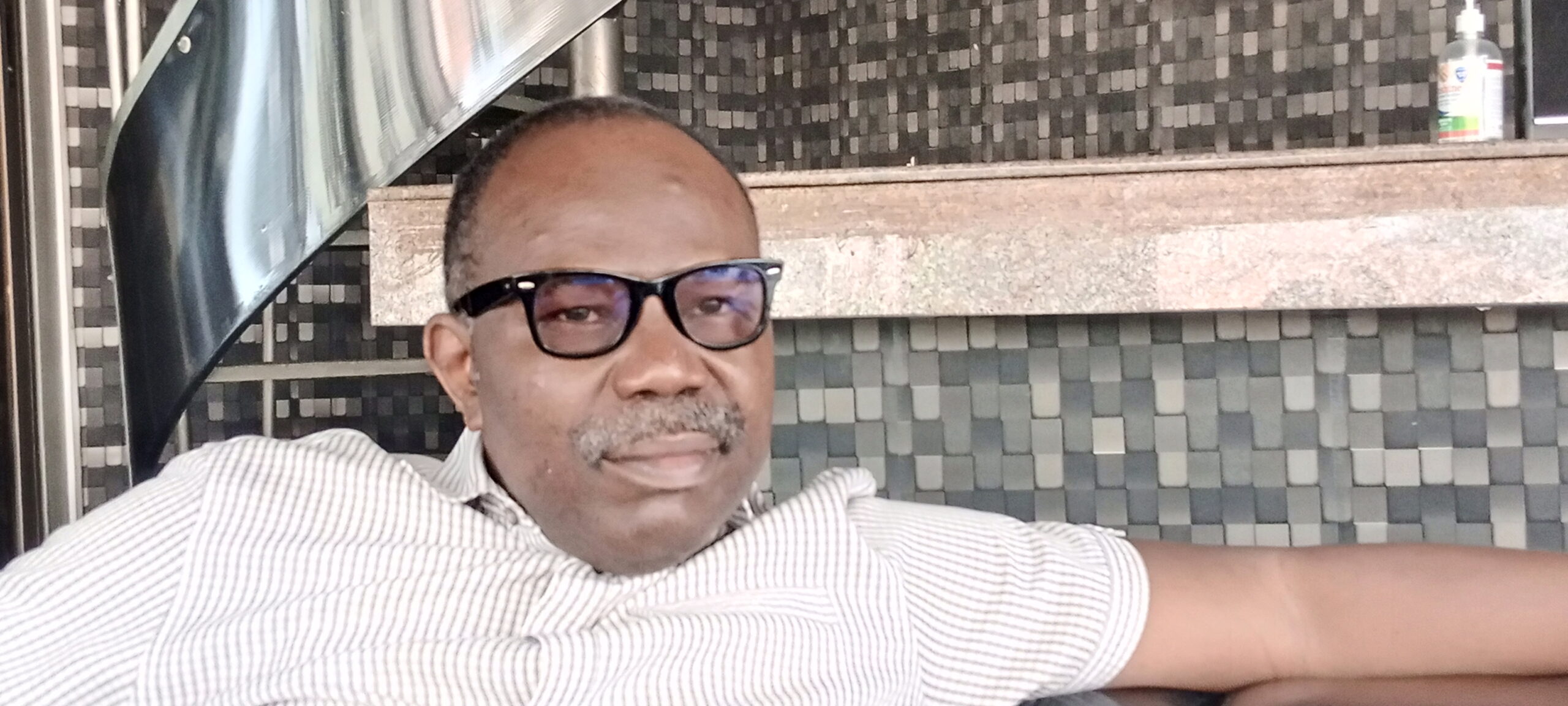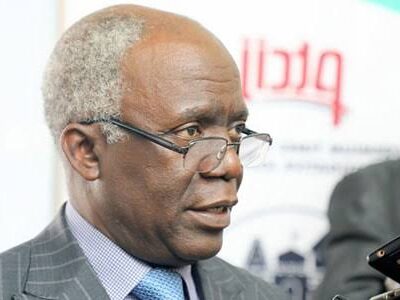
In my earlier column (See my columns in the Daily Sun of June 18, 2020, “Sexual offenses vs rape in Nigeria“, I raised concerns about the mental health of Nigerians as the country was exiting the COVID-19 lockdown.
In that piece, I warned of the potential reality of the soaring number of mental health cases in our country. Quite expectedly, the restriction placed on the liberty of Nigerians during that period was having its toll and birthing many forms of mental disorders. The expectation was that, as we were exiting the lockdown, the country would have been ready for the treatment of these mental disorders so as not to allow them to fester or graduate into mental illnesses.
Alas, that was not to be, as the emphasis of our healthcare plan was on conventional health issues. This was in spite of the global warning that the number of mental health cases was tipping. The resultant effect was that, ultimately, Nigeria ended up without paying the deserved attention to mental health development. Inevitably, so many of the preliminary cases of mental disorders graduated into mental illnesses. By that very development, unwittingly, the country succeeded in astronomically growing its stock of mental health cases as the cumulative number became staggering. No wonder the number of mental health cases, according to the president of the Association of Psychiatrists in Nigeria then, Taiwo Obindo, has risen to over 80 million in the country. I have no doubt in my mind that this is just a conservative estimate as our data-gathering process is often integrity-challenged on one part and, on the other, the capacity to diagnose mental health cases is still largely lacking in our country.
Mental health case reportage is still very low due to a lack of awareness and capacity to make diagnoses. Stigmatization of victims has also not helped in this respect. Families and friends often distance themselves from the affected persons. Even at workplaces, mental health patients are often isolated and ostracized. It is quite a pathetic situation to develop a mental disorder or illness in Nigeria. You are treated automatically as an outcast. That the menace of mental health is real is easily ascertainable from the conduct of Nigerians. For instance, how do you explain stealing obscene amounts of money from the public vault? How do you rationalize the reckless manner of driving on Nigerian roads?
How do you justify ritual killings for money, if not insanity? Some misconducts of Nigerians are best to be considered through mental health depreciation. Many of the mental disorders and ailments that exist are often treated as supernatural attacks and victims are banished to traditional healing homes or religious centers. The victims cannot be blamed for basically three reasons, which are: lack of understanding of the nature of the disease; affordability to access care, lack of personnel, and even health facilities required for the care of mental health patients. I must not forget to identify the level of awareness among the populace which is ridiculously low.
So many factors account for the increasing cases of mental health ailments and, even as a layman, I know that some of the causation factors are substance abuse, work pressure, climate change, violent conflicts, extremism, poverty, and so on.
If these factors are domesticated, Boko Haram attacks in the northern part of the country will account for something; psychological pressure and other trauma such as that emanating from road accidents and other accidents are contributory factors, effects of kidnapping on the victims and their relatives and associates of victims cannot be discounted; constant life struggles in Nigeria, particularly stemming from economic depression; abuse of all types of substances, including alcoholic drinks; frequent communal attacks in the country; harsh environmental conditions obtainable due to global warming; banditry and other forms of insecurity; expectedly pauperism is taking its toll on the citizens as well as fundamentalism. I know that those trained in the art of caring for mental health disorders and illnesses can catalog other sources of mental disorders and ailments but suffice to content with those seemingly apparent ones that we, as Nigerians, are accustomed to.
Some of the symptoms of mental disorders and illnesses range from social and emotional disturbances, substance abuse, traumas, depression, anxiety disorders, suicidal thoughts, and psychological and neurological ailments. As a country, not so much attention has been paid to so many of the causal factors for one reason or the other, except for the curtailment of substance abuse. Thanks to General Buba Marwa and his team. In the midst of all these, what has my dear country done? Let us start with the legal framework. The extant law on the subject is the Lunacy Act of 1958, a miniature improvement of the 1916 colonial ordinance on the issue. This is talking about a country that is 62 years old. According to Toyin Ajao, a research associate of the African Leadership Centre, the Lunacy Act “is steeped in stereotypes, stigmatization, discrimination, dehumanization and forced psychiatric treatments.”
I cannot but agree more with him, as the object is basically the detention and confinement of mentally ill people. It is from this archaic legislation that the derogatory description of mentally ill patients as “insane”, “mad” or “lunatic” flows. I equally believe that the basis of stigmatization and discrimination originated from the legislation. All attempts since 1958 till date have proved futile in terms of updating this legislation, at least, to the standard required by the World Health Organization. I understand that a draft bill initiated by stakeholders has already been passed by the National Assembly and awaiting the assent of the President. Should this be true, I urge the Presidency to hasten action to save millions of Nigerians suffering from mental ailments. The truth remains that the country does not have any modern legislation on mental health conditions.
This, I believe, is the beginning of the challenge in the sector. Budgeting, as well as funding, cannot be effectively made without legislation that captures all the scenarios in the sector. Again, in terms of even the mental health policy, the last one that I am aware of was made in 2013 and since then no improvement has been made. This is a luxurious statement as even the 2013 mental health policy is yet to be actioned. Just lying fallow in the book. One of the cardinal innovations in the said policy, for instance, is the integration of mental health issues in the primary health scheme. To date, this has not seen the light of day. Again, those responsible for breathing life into the policy should do something about this. The purpose of the integration is not only to create awareness but also to bridge the capacity gap in the care of mental ailments.
At this level, paramedics’ capacity will be developed. As things stand, most personnel, at the primary health care level, know little or nothing about mental health conditions. Hence, they are unhelpful in identifying, much less treating, mental health cases. This explains why most people suffering from mental health ailments still find themselves in traditional herbal homes and religious houses.
As remarked above, a large number of sufferers of mental ailments are still made to believe that they are suffering from diabolical attacks, the cure of which resides either in traditional healing homes or religious homes. This is often attributed to supernatural causes like witchcraft and evil spirits. The sad news is, even at times, some of the so-called psychiatrists equally advise patients to seek divine or religious help. Oftentimes, these victims are placed in an asylum-like environment, undignifying, and made to forcefully consume all manner of concoctions prepared in the most unhygienic environment. Their issues are even compounded ultimately as a result of this incompetence or wrong treatment. The consequence of traditional treatment even where potent is that they are largely offensive to the human rights of the victim. It is not uncommon to find them chained, given degrading treatments, and put in destitute living conditions.
This has led to, not only stigmatization of these people but abuse of them. In fact, discrimination against them has reached its climax, yet no law is addressing this. To the best of my knowledge, only Ekiti State has legislation that has specifically addressed this. The law, titled non-discriminatory mental health service law, is targeted at eliminating stigmatization, marginalization, and abuse of mental health patients.
This needs to be urgently emulated by the other States of the federation and the federal government. To date, only ten percent of those affected by mental health challenges have access to proper medical help, and that is mainly within the cities. Remember that mental health treatment does not come cheap and regrettably, is not covered by most health insurance plans. Even where affordable, they are inaccessible as the number of mental health facilities is severely limited.
However, this is not to say that the traditional practice in all instances is ineffective. Some are result-oriented but need to be aligned with modern standard practices to avoid abuse. The message is that such potent traditional practice needs to be incorporated into the mental health policy. This is more so as about sixty percent of our people still live in rural areas and patronize them. Even within the cities, some sizeable numbers of mental health cases still pass through the traditional health system. Hence, the need to assist in the integration and modernization of the traditional practice. As of date, I understand that the total number of psychiatrists in Nigeria is barely above three hundred in a population of over two hundred and forty million people.
An average of a psychiatrist to 800,000 people. Some of those psychiatrists have been poached by foreign countries that could afford to treat them well while others have veered into other trades, as a majority of those afflicted with mental health challenges cannot afford to pay for their services. The most pronounced consequence of mental health is a suicide, at least in terms of awareness, and Nigeria has one of the highest rates in Africa.
Between January 2010 and December 2019, three hundred fifty people were reported to have committed suicide. Recent examples are that of the Lagos consultant with a giant telecoms company, Folake Abiola. I am sure we remember Lekan Odunare who jumped into the Lagos lagoon. These and many more have occurred and are still happening. Hence, the urgency required in addressing the various concerns on our mental health as a people.
Addressing mental health in an environment like ours is now much more compelling as the heat suffocates all over. As a country, therefore, we must declare a state of emergency on mental health as several silent and avoidable deaths continue in the nation, particularly amongst our youth, and the leaders of today and tomorrow. The point must be made that apart from the fact that the generation ‘y’ and ‘z’s shock absorber or endurance is low, the global pressure arising from today’s struggles as well as the technological pressure, renders them ever vulnerable to mental instability.
No nation toys with its youth and expects to have a future. Since the country seems to lack personnel as well as infrastructural facilities for catering to the victims of mental health, it is suggested that the now evolving digital therapy through social media, operated mainly by NGOs be embraced as a matter of urgency. The insurance scheme may also need to be urgently reviewed to provide for mental health cases cover.
The country cannot afford to continue the neglect the mental health of Nigerians. Nigeria missed the golden opportunity to provide for it during the Covid-19 pandemic when some of us reminded them. This is another reminder and a wake-up call to arrest the exponential rise in cases of mental illnesses in the country.























Comments